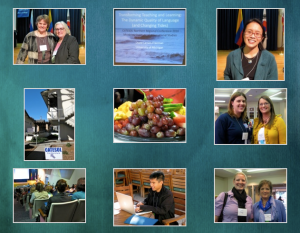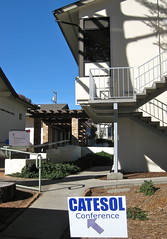* Featured Panel *
Getting Past Perceptions: Transformative Teaching by Nonnative-Speaking English Teachers
An important “changing tide” in our profession involves the roles and status of non-native English speaking teachers (NNESTs). This panel examines NNESTs’ situations from the perspective of a program administrator, a teacher educator, and three NNESTs, who will discuss the rewards and challenges of employing, educating, and being NNESTs.
Kathleen M. Bailey (panel moderator) received her MA and PhD from UCLA. She teaches at the Monterey Institute of International Studies and in the online TESOL program at Anaheim University. From 1998-1999, she was the president of TESOL. She is currently the President of The International Research Foundation for English Language Education (TIRF), a non-profit organization which supports research in our field.
Adalyat Akbarova received her BA in teaching English and Turkish at the University of International Relations and World Languages, Kazakhstan. She taught General English to university level students in her alma mater for 4 years. She is a recipient of the Presidential Scholarship and is currently pursuing her MA degree in TESOL at the Monterey Institute of International Studies.
Yulia Nikolskaya taught English as a foreign language in Moscow, Russia, from 2003 – 2009. She currently works as an instructor of English as a second language in the Intensive English Programs at the Monterey Institute of International Studies and is completing her MA in TESOL at the Institute.
Hwabok Oh is from South Korea and is an MA candidate in TESOL at MIIS. She taught English in Korea from 2001 to 2009 for elementary through college level students. Her last job was teaching the grammar section of TEPS (Test of English Proficiency, developed by Seoul National University).
Patricia Szasz is the Director of Intensive English Programs at the Monterey Institute. An alumna of the Institute’s MA TESOL program, Patricia serves as the Chair for the Intensive English Program level of CATESOL. Her academic interests include program administration, project-based learning, and intercultural communication issues.




You must be logged in to post a comment.